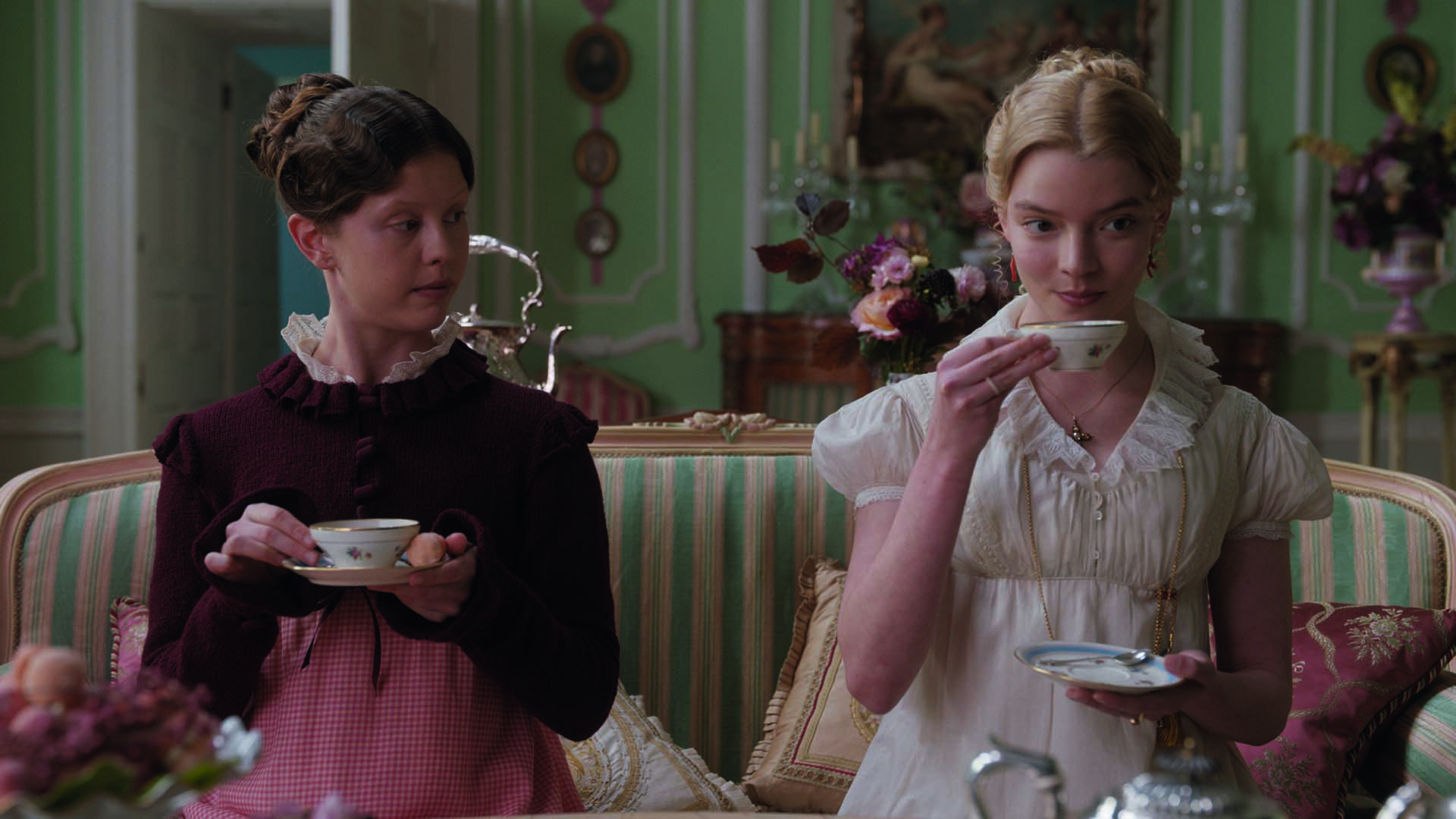Emma
Jane Austen's matchmaker returns to the screen in this dutifully faithful, perfectly palatable yet hardly memorable adaptation.
Overview
Happiest when she's playing matchmaker, experienced at meddling in the affairs of others and accustomed to a comfortable level of standing in her village, Emma Woodhouse withholds judgement on no one. Since first popping up on the page 205 years ago, Jane Austen's heroine has always been a picture of youthful hubris. Case in point: the 20-year-old member of the upper class wouldn't dream of letting a friend marry a mere farmer. She eventually learns the error of her well-meaning arrogance, of course. That's the journey that Austen's Emma charts, following the titular character's evolution from unthinking snobbishness to genuine compassion. But if the fictional Miss Woodhouse was somehow asked to survey the latest film to tell her story, we're certain that her opinionated tendencies would still shine through. Renowned for eschewing the average and ordinary in the hope of a more romantic option, she'd at least arch an eyebrow at this dutifully faithful, perfectly palatable yet hardly spectacular adaptation.
Emma may be stylised on its marketing materials as 'Emma.', as though it's putting a full stop on all big-screen iterations of Austen's novel; however it's unlikely to become the definitive book-to-film version of this tale. That title continues to belong to Clueless, a movie that modernised the details, played fast and loose with certain specifics, and turned Austen's comedy of manners into an even savvier delight than it already was. Devotees of the original text might consider that statement blasphemous, but Emma's musings on love, life, social status and human nature thrived under a bolder spotlight. Indeed, Clueless outshone the more traditional Gwyneth Paltrow-starring adaptation of Austen's novel that came out just a year afterwards, and did so easily. The difference a quarter-century ago, and now as well: Clueless engages with and re-interrogates the narrative and its insights, rather than just reverently recreating it.
They all tell the same general story, though. For those who haven't committed the broad strokes to memory alongside Alicia Silverstone's 90s outfits, Austen's tale revolves around Emma (played in this 2020 iteration by Anya Taylor-Joy) and her current matchmaking mission. Her friend Harriet Smith (Mia Goth) receives a marriage proposal from local tenant farmer Robert Martin (Connor Swindells), with whom she's clearly besotted, but Emma is convinced that her pal can, should and must do better. So, she nudges Harriet towards seemingly kindly vicar Philip Elton (Josh O'Connor). As well as earning the disapproval of her neighbour George Knightley (Johnny Flynn), who she treats like a brother, Emma's interference causes significant ripples throughout the village. It doesn't help that the rich, handsome and vain Frank Churchhill (Callum Turner) has just returned to town, and the quietly accomplished Jane Fairfax (Amber Anderson), too — with the former considered a potential match for Emma herself, and the latter the target of her palpable jealousy.
Well-heeled chaos ensues — as much chaos that can ensue within stately and sprawling country manors, while compliant, silent servants are always on hand, and amidst polite conversation constantly tinted with gossip (although as Downton Abbey keeps demonstrating, that's plenty). Emma circa 2020 does everything it's supposed to, including using its sumptuous production and costume design to paint a vivid picture of Regency-era England, but it adds little of its own personality. Austen's prose, here shaped into a screenplay by The Luminaries' author Eleanor Catton, still sparkles with wit. Making her feature filmmaking debut, photographer and music video director Autumn de Wilde retains the novel's playful mood, and pairs it with a sweeping sense of visual symmetry that'd do Wes Anderson proud. And yet, this adaptation feels mostly indistinguishable from the many other unchallenging film and TV versions of literary classics that've reached screens over the years. In fact, the end result is fine, but in the passable rather than excellent sense of the word.
It can be a strange sensation, watching a movie that hits plenty of marks and still feels just standard, but that's this iteration of Emma. The film's various parts boast a variety of charms, and yet they never manage to leave much of an imprint. The main outlier: The Witch, Split and Glass' Taylor-Joy. There's little in the way of purposeful contemporary parallels in this take on Austen's tale but, in Taylor-Joy's hands, Emma herself seems like she could easily be passing judgement on her peers and their love lives via Instagram. As the overly chatty, far less wealthy Miss Bates, Miranda Hart (Call the Midwife) also stands out, especially when her character becomes the target of Emma's withering comments. But it might be Bill Nighy, playing Mr Woodhouse, that encapsulates the movie best. He's as reliable as ever, trots out all his usual moves, and inspires more than a few laughs and smiles — but you always know exactly what you're in for.





